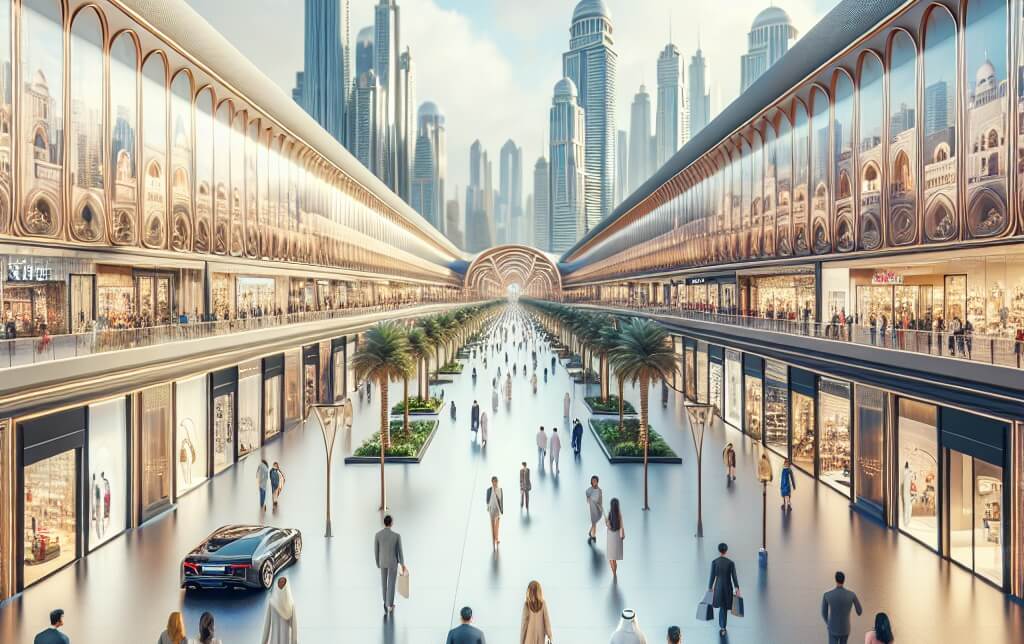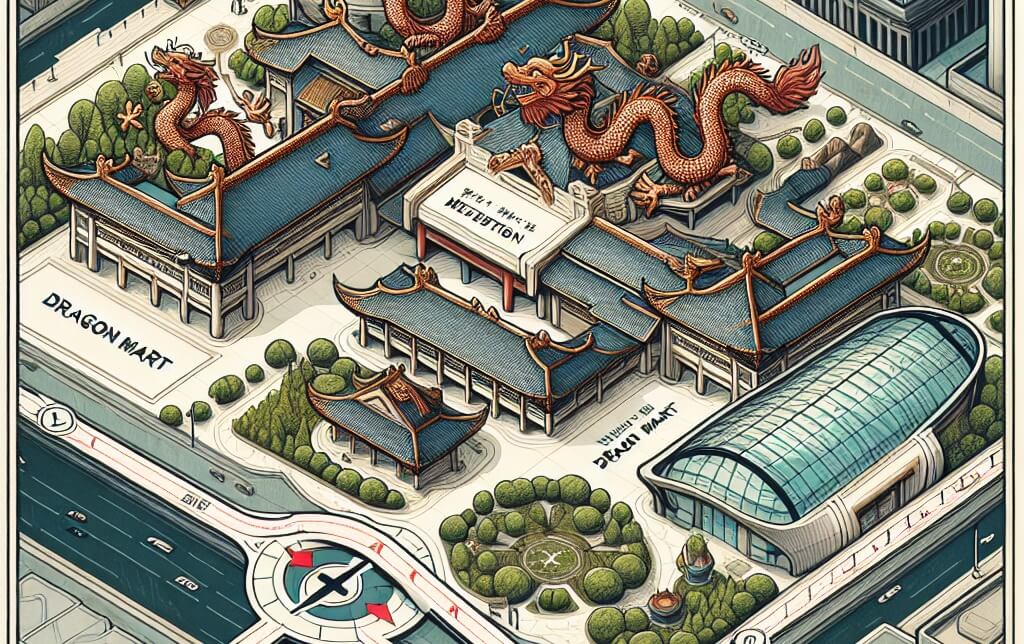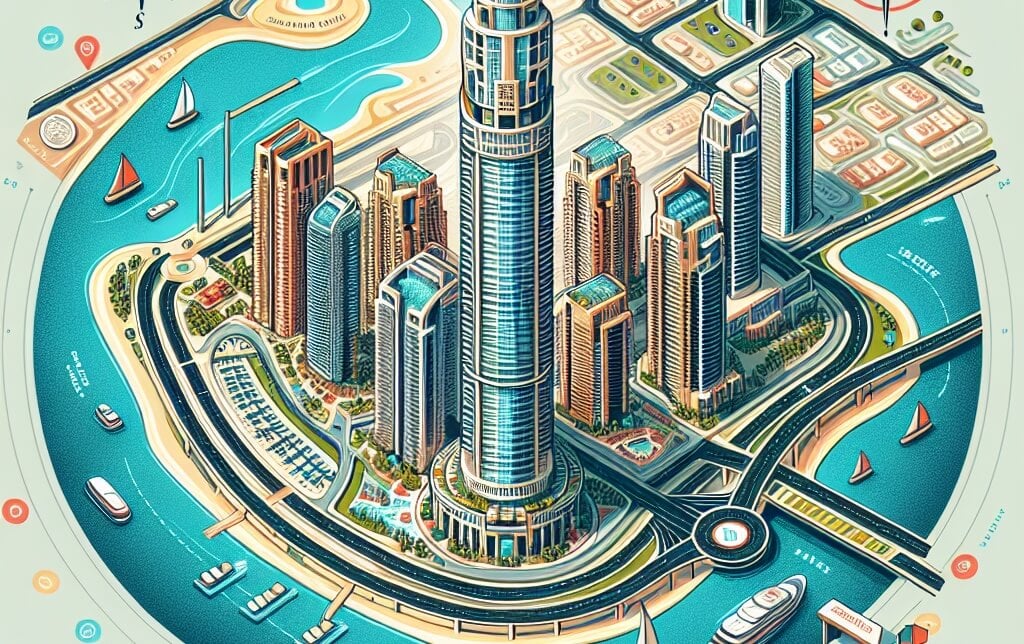
Dubai Real Estate Market Trends: Insights and Analysis
The Dubai real estate market trends exhibit a dynamic landscape characterized by a blend of opportunities and challenges. In recent years, the market has shown resilience and adaptability in the face of economic fluctuations and global uncertainties. An analysis reveals a shift towards sustainable and innovative real estate developments, driven by a growing emphasis on technology and environmental considerations. The market's performance is influenced by factors such as government policies, market demand, and investor sentiment. Understanding these trends is crucial for stakeholders to make informed decisions and navigate the evolving real estate landscape in Dubai effectively.
I. Introduction
In recent years, the Dubai real estate market has been a focal point of interest due to its dynamic and ever-evolving trends. The sector has experienced significant fluctuations, influenced by factors such as economic conditions, government policies, and global market dynamics. Understanding these trends is crucial for investors, developers, and other stakeholders to make informed decisions and navigate the complexities of the market. This introduction sets the stage for a comprehensive analysis of the current landscape of the Dubai real estate market, shedding light on the key trends shaping its future trajectory.
II. Economic Factors
Economic factors play a significant role in shaping the trends observed in the Dubai real estate market. Factors such as GDP growth, inflation rates, employment levels, and interest rates all impact the demand for properties in the region. Additionally, the stability of the global economy and fluctuations in oil prices also have a direct influence on the real estate market in Dubai. Investors and developers closely monitor these economic indicators to make informed decisions regarding property investments and developments. As such, understanding and analyzing economic factors is crucial in predicting the future trajectory of the Dubai real estate market and identifying opportunities for growth and investment.
III. Supply and Demand
In examining the Dubai real estate market trends, the concept of supply and demand plays a crucial role in shaping the dynamics of the sector. The balance between the availability of properties for sale or rent, represented by the supply side, and the interest and purchasing power of potential buyers or renters, represented by the demand side, significantly influences pricing and market conditions. In recent years, Dubai has experienced fluctuations in both supply and demand due to various factors such as economic conditions, government policies, and global market trends. Understanding the interplay between supply and demand is essential for stakeholders in the Dubai real estate market to make informed decisions and navigate the evolving landscape effectively.
IV. Price Trends
In analyzing the price trends within the Dubai real estate market, it is evident that there has been a notable fluctuation in property prices over recent years. Factors such as economic conditions, supply and demand dynamics, and government policies have all played a significant role in shaping these trends. Despite experiencing periods of both growth and correction, the market has shown resilience and adaptability. It is essential for investors and stakeholders to closely monitor these price trends to make informed decisions and capitalize on opportunities within the dynamic Dubai real estate market.
V. Residential Real Estate
In the context of Dubai's real estate market trends, residential real estate, denoted as V. Residential Real Estate, plays a significant role in shaping the overall landscape of the industry. The demand for residential properties in dubai has been influenced by various factors such as population growth, economic stability, and government initiatives. The market has witnessed a shift towards more affordable housing options, with developers focusing on providing a diverse range of properties to cater to different segments of the population. Additionally, the introduction of regulations and measures to enhance transparency and investor confidence has further contributed to the growth and stability of the residential real estate sector in Dubai.
VI. Commercial Real Estate
In the context of the Dubai real estate market trends, Commercial Real Estate plays a significant role in shaping the overall landscape of the industry. With the continuous growth and development of Dubai as a global business hub, the demand for commercial properties remains robust. Investors and businesses alike are attracted to the diverse range of opportunities available in the commercial real estate sector, including office spaces, retail outlets, and industrial properties. The evolving trends in commercial real estate, such as the increasing focus on sustainability and technology integration, are influencing the decision-making processes of stakeholders in the market. As Dubai continues to position itself as a leading commercial destination, the Commercial Real Estate sector is expected to remain dynamic and resilient, offering ample opportunities for growth and investment.
VII. Government Regulations
In the context of Dubai's real estate market trends, government regulations play a crucial role in shaping the overall landscape of the industry. The government of Dubai has implemented a series of regulatory measures to ensure transparency, stability, and sustainability in the real estate sector. These regulations cover aspects such as licensing requirements for real estate agents, strata laws for property management, and guidelines for property developers. Additionally, the government has introduced measures to curb speculative activities and promote long-term investment in the market. By enforcing these regulations, the government aims to protect the interests of both investors and consumers, thereby fostering a healthy and vibrant real estate market in Dubai.
VIII. Investment Opportunities
In the dynamic landscape of the Dubai real estate market trends, the sector presents a myriad of investment opportunities under the category of 'VIII. Investment Opportunities.' These opportunities encompass a diverse range of options, including residential properties, commercial spaces, and mixed-use developments. Investors can capitalize on the market's fluctuations and emerging trends to strategically position themselves for long-term growth and profitability. By carefully analyzing market data, understanding the demand-supply dynamics, and identifying areas of potential growth, investors can make informed decisions to maximize their returns in the Dubai real estate market. It is imperative for investors to conduct thorough due diligence and seek professional advice to navigate the complexities of the market and seize the most promising investment opportunities available.
IX. Transaction Volume
In the context of Dubai's real estate market trends, the transaction volume, as indicated by the number of property sales and purchases within a specified period, serves as a critical metric for assessing the overall health and activity levels of the market. The transaction volume data provides valuable insights into the level of investor confidence, market liquidity, and demand for properties in Dubai. A high transaction volume typically signifies a robust market with active buyer and seller participation, indicating a positive sentiment towards real estate investments. Conversely, a low transaction volume may indicate a sluggish market with reduced investor interest or external economic factors impacting the sector. Therefore, monitoring transaction volume trends is essential for understanding the dynamics of the Dubai real estate market and making informed decisions regarding investment strategies.
X. Rental Rates
In the dynamic landscape of the Dubai real estate market, rental rates play a pivotal role in shaping overall trends and demand. The fluctuation of rental rates in Dubai is influenced by various factors such as economic conditions, supply and demand dynamics, and government regulations. As one of the key indicators of the market's health, rental rates in Dubai reflect the city's attractiveness as a residential and commercial hub. Investors and tenants closely monitor rental rates to make informed decisions regarding property investments and leasing agreements. Understanding the nuances of rental rates is essential for stakeholders navigating the ever-evolving Dubai real estate market.
XI. Conclusion
In conclusion, the Dubai real estate market is demonstrating notable trends that are shaping the industry landscape. The market has shown resilience in the face of challenges, with a steady increase in property transactions and prices in recent years. Factors such as government initiatives, infrastructure development, and a diverse range of property offerings have contributed to the market's attractiveness to investors and homebuyers alike. As the market continues to evolve, staying informed about the latest trends and developments will be crucial for stakeholders looking to make informed decisions and capitalize on the opportunities presented in the dynamic Dubai real estate market.









